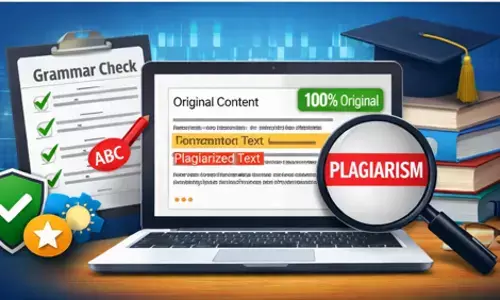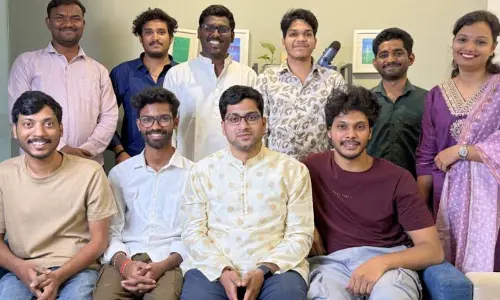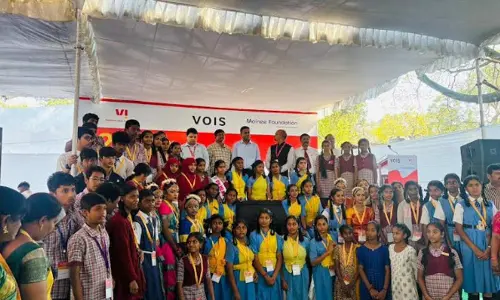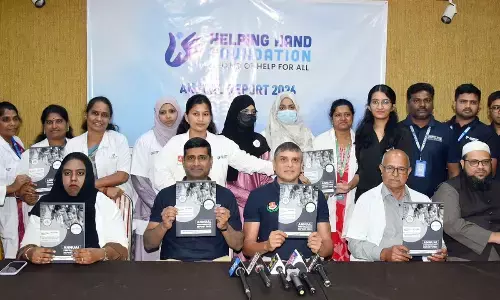Latest apex court verdicts pitch for national integration

The much-awaited verdict on Ram temple in Ayodhya has finally brought down the curtains on the most contentious issue.
The much-awaited verdict on Ram temple in Ayodhya has finally brought down the curtains on the most contentious issue.
It must be said to the credit of the Supreme Court which has shown sagacity and delivered the historical judgement unanimously by a Constitutional bench comprising five judges.
Notwithstanding micro dissenting whispers in the political circles within country it is a fact that the stock of India has galloped phenomenally all over the world after the pronouncement of the judgement .
The century-long tedious wait of Hindu population has earned accolades from the believers of other faiths as well the much-misunderstood Islamists.
However, it is equally important to keep strict vigil on the destructive elements that are ever ready to strike violently at the behest of their 'bosses' who exercise remote control over them.
Also a word of caution for the self-proclaimed defenders of Hinduism is necessary. Even before the ink of the Ayodhya judgement has dried, several groups have engaged themselves in "tu tu, maime" game.
Needless to say that such mean and avaricious behaviour by some Hindu groups and organisations would lower the country's image in the eyes of other countries. In another development the Supreme Court has dismissed the review petition filed by advocate and activist Prashant Bhushan and two former Union Ministers Yeshwant Sinha and Arun Shourie.
The court categorically stated that its verdict in Rafael case remains unchanged. Thus, opponents' baseless allegations of corruption in the purchase deal of Rafael fighter aircrafts have fallen flat.
In the same breath the apex court while accepting the unconditional apology of former Congress president Rahul Gandhi who had falsely attributed his insulting rhetoric 'Chowkidar Chor Hai" to the apex court also cautioned him to be careful in his utterances in future.
The apex court in yet another review petition on entry of women in Sabarimala temple widened the scope of the subject matter and referred the case to a wider bench of seven judges while retaining the status quo.
Amidst virtual flood of judgements by the apex court during the last week of retirement of the CJI Ranjan Gogoi a very important news from Pakistan has almost gone unnoticed.
Succumbing to the diktats of the international Court of Justice (ICJ) in Kulbhushan Jadhav case, our neighbour has now decided to conduct his trial in a civilian court.
Indeed, this is a big legal victory of India against Pakistan who was hell bent upon branding Jadhav as an Indian spy and on that pretext take away his life through a court martial drama.
CJI Ranjan Gogoi retires
The 46th Chief Justice of India,Ranjan Gogoi held last court on November 15. He demitted the office on November 17. He was the first person from North-East to become the Chief Justice of India.
He will be remembered for his epoch making judgements like on Ayodhya Ram Mandir, Triple Talaq, Entry of women in Sabarimala temple, Rafael deal etc. As the CJI he was quite affable, unassuming and humble.
TSRTC issue remains unresolved
One of the most prolonged strikes by the employees of State-owned public transport companies the Telangana State Road Transport Corporation has so far alluded solution . The highcourt's wise counsel to the warring parties too has not yielded desired results.
Unfortunately, the whole issue has been engulfed by legal technicalities more than addressing itself to a simple question: why a common man should suffer due to the differences between employees and the management and government?
When in a democracy people are the masters, then how dare those meant to serve these masters hold the latter for ransom or deny serving them.
Indeed, the issue deserves to be attended urgently in a holistic manner. So far, some 24 employees have died as a result of which the striking employees' patience has run out and situation has become explosive.
JCJ prelim result quashed
In a rare move, the Chhattisgarh High Court has quashed the result of preliminary examination for recruitment of civil judges conducted by the State Public Service Commission.
The unprecedented move by the High Court came after hearing of a petition. The court found that in the key provided as answers to 100 questions, there were errors in 41 answers. This fact vitiates the entire process of examination, the court observed.
This reveals the casual approach of the examining body and those responsible for the callousness should be severely punished by the High Court.
P&H HC on 138 NI Act
The Punjab and Haryana High Court has ruled that the accused in a cheque bounce case is not competent to tender evidence by affidavit.
The court ruling came in a judgement delivered on November 5 in Rajni Dhingra vs Sanjeev Chug. Justice Surinder Gupta after examining the scope of Section 145(1) of Negotiable Instruments Act and the apex court's judgements in Mandvi Cooperative Bank vs. Nilesh Thakore (2010) 3 SCC 83 and Indian Bank Association & Others vs. Union of India & Others (2014) 5 SCC 590 held : "the petitioner being an accused , who is facing trial in complaint under the provisions of N I Act, is not competent to tender evidence through affidavit."
Sanction not necessary: HC
The Allahabad High Court has held that there is no need to obtain sanction of the government to prosecute a retired government servant under the provisions of Prevention of Corruption Act.
The bench of Justice Dinesh Kumar Singh in his judgement in Shyam Bihari Tiwari vs. State of Uttar Pradesh stated : " As per the provisions of Section 19 for taking cognizance of the offence under the Prevention of Corruption Act it is necessary for the public servant to remain service and in the present matter on the date of taking cognizance the revisionist was not in service as he had retired, hence there was no need to seek prosecution sanction for revisionist under Section 19 of Prevention of Corruption Act."
Referring to Section 197 of CrPC and the apex court's verdict in Amrik Singh vs. State of Pepsu, AIR 1155 SC 309 the court reiterated that even in case of in-service public servants prior sanction would be necessary only if the alleged offence is mainly and substantially concerned with the discharge of his duties.
Advocates call off strike
The Coordination Committee of All Districts Bar Associations has called off the 14-day-old strike following violent clashes between lawyers and Delhi police on November 2.
The decision came in the wake of directive given by the Delhi High Court to police not to resort to coercive action against advocates and adjourning the matter to December 23 for further hearing.










